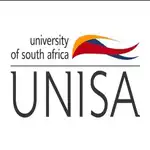University of South Africa UNISA Teaching Course
Schools, departments & centres
The College of Education is made up of the School of Education, the School of Teacher Education, the Centre for Continuous Professional Teacher and Community Education and Training and the Teaching Practice Unit.
Qualifications
Formal qualifications
Formal qualifications refer to those qualifications that are subsidised by the Department of Higher Education and Training, and therefore offered under the DHET policies and legislation. The following formal qualifications are offered by the college:
Qualification information for everyone planning to start a new qualification:
- Undergraduate degrees, higher certificates and higher diplomas, and postgraduate certificates
- Honours degrees and postgraduate diplomas
- Master’s & doctoral degrees
Find a UNISA Undergraduate Qualification based on a college
Agriculture & Environmental Sciences
Find a UNISA Undergraduate Qualification by Level
UNISA Higher Certificate Courses
UNISA Advanced Diploma Courses
UNISA Baccalaureus Technologiae Degrees
University of South Africa Short Courses 2025-2026
UNISA Short Courses in Accounting Sciences
UNISA Short Courses in Agriculture and Environmental Sciences
UNISA Short Courses in Economic and Management Sciences
UNISA Short Courses in Education
UNISA Short Courses in Graduate Studies
UNISA Short Courses in Human Sciences
UNISA Short Courses in Science , Engineering and Technology
University of South Africa Honours Degrees and Postgraduate Diplomas Courses 2025-2026
Find UNISA Honours Degrees and Postgraduate Diploma Qualification based on a College
All honours degrees & postgraduate diplomas
Agriculture & Environmental Sciences
Find Honours Degrees and Postgraduate Diplomas by Qualification level
Qualification information for successful applicants and re-registering students:
The qualification information for the registration is not yet available.
Short Learning Programmes (non-formal qualifications)
Short Learning Programmes offered by Unisa focus on “just in time” and “just enough” learning to meet a specific learning need identified by society. This need can focus on enabling access to other Short Learning Programmes or to improve access to the study of formal qualifications at Unisa, or it can address a specific need in the workplace.
Short Learning Programmes can update or broaden skills and knowledge in a specific area to enable life-long learning. In this manner, Short Learning Programmes assist students with their continuing professional development by upgrading their skills and knowledge in newly developed areas or by sharing the results of research.
Recognition of Prior Learning (RPL)
During your lifetime, you will have acquired various skills, competencies and experiences. This learning – which may have taken place outside of formal education and training – is valuable regardless of where or when it was obtained. You may have acquired skills or knowledge from a combination of training conducted while at work, experience you gained in the workplace, short courses or from community work in a relevant field.
RPL permits you to gain credits within formal certificate, diploma and degree qualifications offered by Unisa based on the level and extent of your knowledge. Your prior learning will be measured against specified prescribed learning outcomes.
Visit www.unisa.ac.za/rpl for more information.
Community engagement
There are currently 26 Community Engagement (research) projects taking place across the College of Education. These include the Dynamics of Violence in Schools Project, the Early Childhood Development (ECD) Outreach Intervention and the Science Outreach in KwaZulu-Natal.




